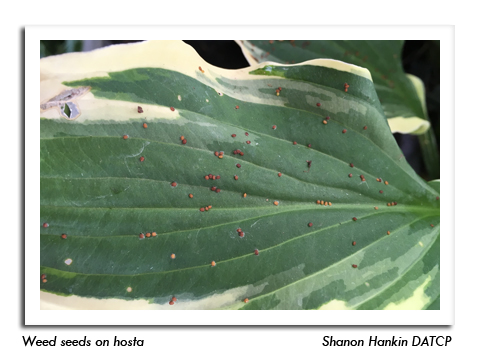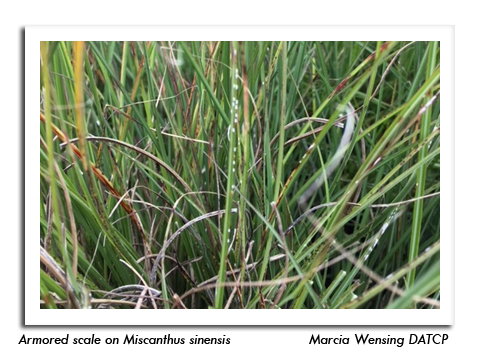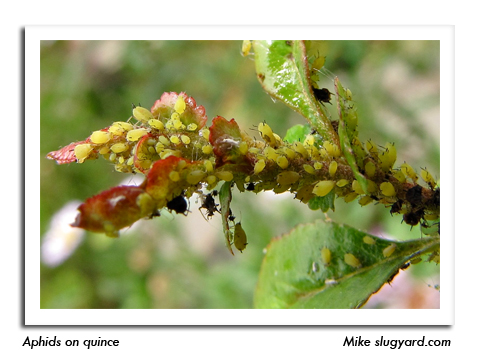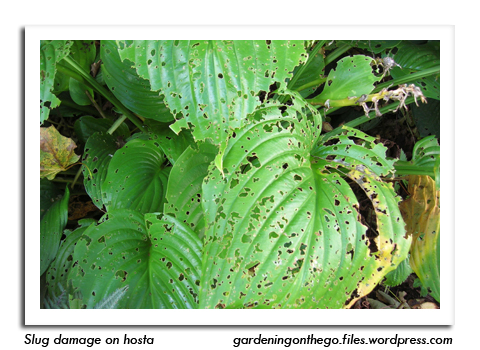
 |
|
|
Nursery & Forest
Volume 63 Number 8 Date 06/21/2018 PHYTOPLASMA - As previously reported, nursery plants testing positive for phytoplasma were recently found in Walworth County. Additional plants from Eau Claire and Jefferson counties have also tested positive. The infected plant species include Coreopsis, Echinacea, Monarda and Veronica. Phytoplasma symptoms generally include bushy growth with increased branching, yellowing, greening of flowers from loss of pigment (virescense), leaf-like structures in place of flowers (phyllody), and stunting. -- Sam Christianson, DATCP Plant Industry Lab WEED SEEDS - Unidentified weed seeds were common on the leaves of many plantain lily hostas at a nursery dealer in Rock County. Nursery managers and consumers are reminded to make sure plants are clean before selling or buying to eliminate this potential pathway for the spread of unwanted or invasive plant species. ARMORED SCALE - The armored scale Duplachionaspis divergens was found on Japanese silver grass (Miscanthus sinensis) at two nursery dealers in southeastern Wisconsin. This southern U.S. scale insect has not previously been reported in Wisconsin. Nursery inspectors acted quickly to have infested plants removed and destroyed to prevent the pest from spreading. The armored scale has an elongate white cover and can produce multiple generations per year. It is unknown if the insect can survive Wisconsin winters. Any plant suspected of being infested with this scale should be immediately double-bagged and disposed of. APHIDS - A variety of aphids feeding on various herbaceous ornamentals and vegetables have been noted in nurseries and garden centers this month. Most plants are susceptible to aphid feeding, especially when young, and many species are primary vectors of plant diseases. Routine monitoring for aphids should be underway. Control options include dislodging with a forceful spray of water, using commercially available biological controls, or treating severe problems with insecticidal soaps or horticultural oils. SLUGS - Persistent wet conditions are providing favorable conditions for slug activity and damage throughout much of the state. Because slugs are nocturnal feeders, plant damage appears overnight and the cause is usually not apparent. Species such as the grey field slug, Deroceras reticulatum, are capable of inflicting substantial crop and garden damage, traveling up to 40 feet in one night. Slug activity quickly subsides with drier weather, but if control is warranted, a few options are as follows: sprinkling diatomaceous earth atop the soil beneath high-risk plants; encircling containers and small raised beds with protective copper tape; or trapping slugs by placing wet newspapers beneath boards laid on the ground. Slug baits with an iron phosphate component are often a good solution in mulched perennial beds. -- Shanon Hankin, Marcia Wensing and Tim Boyle, DATCP Nursery Inspectors 



|
|
|